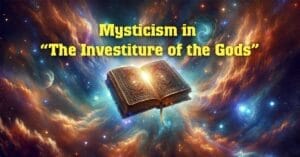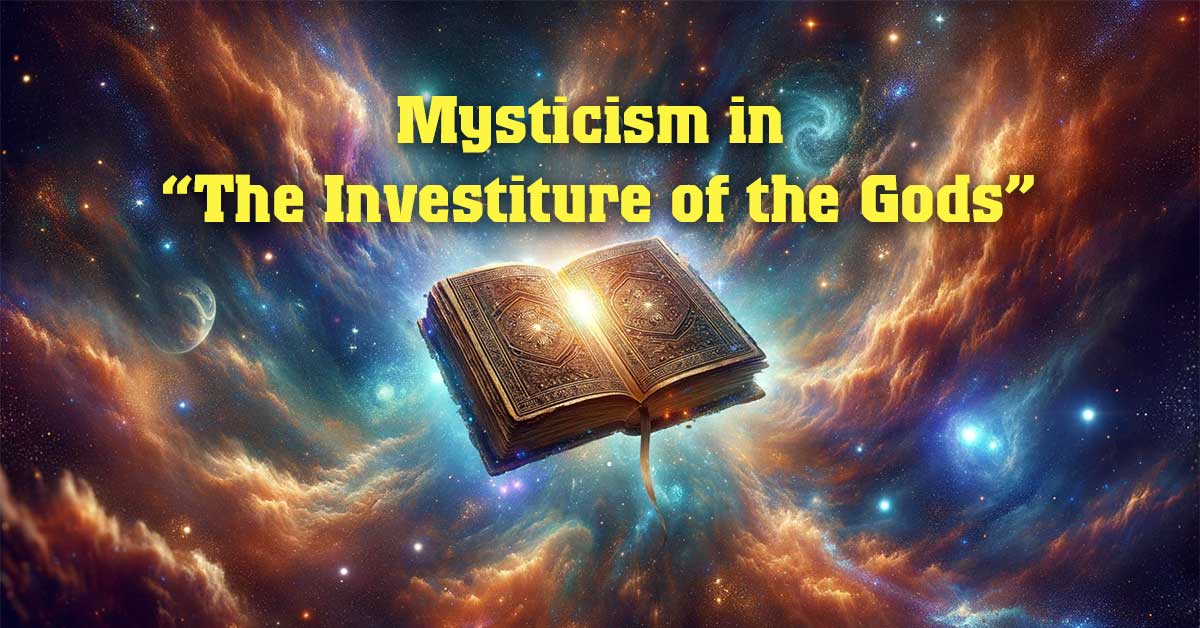The timeless concepts of good and evil are universally addressed by religions and moral institutions, which provide definitive frameworks to distinguish between the two. They promise believers heavenly rewards for virtuous deeds and warn of consequences, including the threat of Hell’s flame for wicked actions.
However, within believers, there are always individuals who harbor occasional doubts about the established criteria of good and evil dictated by their religious and societal traditions.
Is it because the realities around them don’t align with the dogmas they were taught, or is it the desire for freedom and living beyond imposed rules that provides them with valid reasons to doubt?
Such skepticism may arise when the realities they observe diverge from the doctrines they were taught to accept. Alternatively, the doubt may arise from a desire for freedom beyond imposed rules.
Is there reward and punishment for human beings? Is there such thing as Divine Law to separate the good people from the bad? Why is it that so many violent or cunning fellows is blessed with good fortune and is favored with wealth and rank? And for the decent people to often meet with disaster and poverty? Is there Heaven? If there isn’t one, then one has no business blaming Heaven and Earth. But, if it is obvious that Heaven exists, is it possible that Heaven is unjust, biased, and blind? What observations do the researchers of metaphysics and mysticism have in order to clearly solve the issue of good and evil that left so many people feeling uneasy and doubtful? In this chapter, we will attempt to examine this dilemma of good and evil based on the above questions and by coordinating with mysticism, to try and answer them to some extent.
To begin, it is crucial to confine the human capacity for understanding themselves, others, nature, and the physical cosmos to their intellectual abilities and the information obtained through their five senses.
Similarly, when considering the instances of direct intervention or manifestation of deities, whether in punishment or blessing, it is essential to restrict such occurrences to selected individuals who serve as real-life examples.
This phenomenon, often witnessed by metaphysical researchers or a few fortunate common people, provides a link to the exploration of physical and metaphysical principles. By applying observation and logical reasoning in the evaluation and experimentation of these phenomena, we can derive a deeper understanding of the intricate relationship between the physical and metaphysical realms.
Recognizing the failure that modern scientists face in trying to understand everything about our physical world, it’s not realistic to expect a complete understanding of Deities and the Creator. Choosing to acknowledge our limited knowledge is a reasonable and sensible approach. This way of thinking goes beyond exploring the world and cosmos; it includes appreciating the subtleties of Divine Law, Heaven’s Plan, and the realms of Deities and the Creator.
Traditional science has made significant strides in exploring the cosmos, understanding human existence, and revealing material laws that improve our control over nature, enhancing human life. In the last two centuries, natural and social sciences have made valuable discoveries, and applied science has brought comfort to humanity. However, despite these advancements, contemporary science openly admits its incomplete understanding, not only of the tiniest elements within atoms but also of the vast outer space with its many planets, some similar to Earth. Even the most knowledgeable scientists today cannot discern the shape of their own noses or see their faces without a mirror, let alone fully comprehend the intricacies of their bodies. This highlights that the knowledge amassed by science is like a grain of sand compared to the vast unknowns in the material universe.
Stepping into the field of mysticism, we encounter an even more difficult issue that is one thousand times more challenging than that of the physical sciences.
However, mankind’s destiny seems to be closely related to the keen mind of this tiny creature who, despising its littleness always aspires to unfathomable matters, and somehow thinks that he could be in touch with that deep unknown while he is totally ignorant about it. Occasionally, in his daydreams, he enthusiastically imagines that he is even more superior than Shang Ti (the God Above). The tiny being, propelled by his dream, wreaked havoc in the celestial palace with his magical iron stick. Eventually, he had to confront reality and humbly submit himself to punishment under the Wu Jing Mountain for over 500 years (Journey to the West – The Monkey King).
Therefore, it is essential to humble ourselves and recognize that our intellect is not even worth a billionth of a grain of sand before venturing into the realm of the supernatural. If desired, we can bring along some scientific tools, albeit their limited value, to provide a sense of security during our exploration of the supernatural realm. Utilizing observation, differentiation, and generalization tools, we can assess supernatural phenomena that manifest as physical realities.
Furthermore, just as we accept science’s incomplete understanding of the cosmos and our planet, we should also find satisfaction in partial insights attainable through divine revelations in the metaphysical realm. With this perspective, we are now ready to explore the discussion of good and evil in the upcoming sections.
Observing real-life events unfolding before us—in the skies, on the earth, and in the sea—we can distinctly discern several incidents in the natural world that seemingly correlate with the concepts of good and evil.
In the dense forest, the animal kingdom operates under the immutable, unyielding law of “Might over right.” Lions, tigers, panthers, bears, and other predators need no justification to use their strength to capture and consume deer, goats, lambs, cows, and more. When faced with stronger and more ferocious beasts, smaller and weaker animals can only run for their lives.
A similar dynamic unfolds in the deep ocean, where tiny creatures near the water surface are eaten by small fish, which, in turn, become prey for larger fish. The larger fishes, in their quest for survival, consume a variety of smaller fishes. This pattern repeats in the sky as well, where birds prey on worms, bugs, small animals, and fishes. In the broader context of the animal kingdom, it becomes challenging to definitively determine the existence of any principle of good and evil.
How does the pattern of behavior in the animal kingdom differ from that of human history? In human records, we find instances where small clans, races, nations, or groups engage in warfare for survival and dominance. Entire races have faced annihilation or assimilation. Within societies, individuals who possess traits like shrewdness, strength, and cunning often assert dominance over the weak and naïve in the pursuit and competition of interests. It is these harsh realities that prompt the reflection: “Man is a wolf toward his fellow man.”
Faced with these societal realities, some pragmatic individuals opt to advocate for sharpening their skills, likening themselves to powerful and cunning lions and foxes, with the goal of dominating and accumulating wealth at the expense of others. They view this approach as the wisest principle for navigating society.
Despite the prevalence of ruthless wars and slaughters for survival within human society, conscience and righteousness persist, thanks to the teachings of true masters and prophets.
These teachings emphasize fairness, compassion, and love among individuals, advocating for a moral life as a path to Paradise. A portion of humanity has consistently remembered and adhered to these teachings.
Despite occasional displays of bestial behavior among men, a notable distinction from animals remains. Even after horrific internecine warfare, right judgment and human conscience endure. Societal structures, including laws and regulations, are designed to deter harmful intentions and consistently emphasize principles of equality, goodwill, and justice.
Public opinions and international laws exert some influence on nations to abide by certain rules of conduct in conflicts and competitions of interest. However, in practice, there will always be entities resorting to various schemes to sidestep national or international laws for their personal gain.
As a result, followers of religious doctrines have passed down various adages, such as “A good deed begets a return,” “cruelty begets cruelty,” “whoever sows the wind reaps the whirlwind,” “a violent life leads to a violent death,” “blessings can overcome a bad destiny,” “God is just,” and many others.
Religion has played a significant role in promoting acts of kindness and fostering resilience in individuals, urging them to accept their fate and persevere through life’s challenges, especially in the face of the greed and deception of others.
However, unexpectedly, through social interactions, there are instances where individuals find themselves belittled, bullied, and made to feel inferior by wealthier individuals, whether intentionally or not. In such situations, they may experience self-pity and question the reciprocity of good deeds. They may wonder why certain individuals, whom they perceive as lacking morality or even being sinful, are wealthy and powerful. These experiences can shake their religious faith.
Confronted with inexplicable circumstances, some may lose their faith entirely, abandoning the religious principles they had once staunchly adhered to. Ultimately, they may resort to adopting deceitful practices and engaging in relentless competition for wealth and power in this world.
For many, grasping the concept that good and bad actions result in rewards and consequences from divine powers proves challenging. Often, we only witness a portion of someone’s life, usually the successful phase of someone engaging in wrongdoing, and rarely see their downfall as a result of their actions. Even if a malevolent individual faces tragedy, our narrow perspective and inclination to assume otherwise make it difficult to recognize.
However, the timeless wisdom passed down through generations offers insight: “Heaven’s net may be sparse, yet not a single thread can slip through.” This proverb serves as a reminder of the divine laws perpetually observing, impartially dispensing rewards or punishments to each individual.
The intervention of Spirits persists in people’s lives even today, yet many overlook such occurrences, even in seemingly mundane situations. Furthermore, in cases of evident spirit intervention, only a few individuals, such as the adept, the main person involved, and their family, have the chance to witness these events.
We will now recount three typical stories that illustrate the intervention of Spirits regarding the actions of ordinary individuals in society, both good and bad, and how the Spirits either reward or reform these individuals.
1. After April 30, 1975, a communist officer, serving as a member of the commune committee in L.D. commune, C.T. district, V.B. province, fervently embraced the ideology of dialectical materialism upon assuming control. He issued orders to dismantle communal houses and temples, causing hardships for monks and like-minded individuals in the commune, prompting them to seek refuge elsewhere. Subsequently, the officer’s son fell ill, seemingly possessed by a spirit, resulting in erratic behavior. Each evening, the son would vigorously thrash his arms and legs, vehemently criticizing his father and hurling insults for hours until the spirit departed, after which he returned to normal behavior.
This scenario repeated itself regularly, deeply disturbing the father, who attributed the disturbances to malevolent spirits. He recalled how, believing he was under the influence of these spirits, he resorted to firing an M16 rifle into the trees surrounding his home, hoping to scare them away with the gunfire. However, contrary to his expectations, the nightly disturbances persisted unchanged. He then showed me three bullets from a handgun that he had kept as mementos.
He explained that, during one encounter when the demon possessed his son and challenged him, he attempted to scare off the evil spirit by firing three shots toward his son’s feet. To his astonishment, none of the bullets fired. Witnessing this inexplicable event left him feeling uneasy, and he held onto those three unfired bullets as reminders of the supernatural occurrence.
Shortly afterward, he himself fell victim to possession by a spirit, which caused an illness that forced him to adopt a vegetarian diet. Consuming meat would trigger severe vomiting. When I encountered him, he had adhered to this vegetarian regimen for over seven months.
Every night, the spirit, disguised as an ‘evil spirit,’ would simultaneously possess both the father and son, initiating an extended spiritual conflict between them. This orchestrated spiritual duel, which seemed like they were wielding mystical powers against each other, acted as the mechanism through which the celestial spirit coordinated their actions to facilitate a spiritual metamorphosis. Each time it transpired, he invariably yielded and collapsed, conceding defeat in the battle.
Afflicted with possession, he had little choice but to heed his wife and mother-in-law’s counsel, joining them on visits to various small temples and places of worship in pursuit of a remedy. Through these visits, he encountered numerous mystical practitioners in the province. Some suggested venerating specific Buddhas or Bodhisattvas by placing their images on the altar, while others elucidated religious tales and scriptures. Despite his initial hesitation, he dutifully adhered to their recommendations owing to his affliction. As a result, the mediums, psychics, and shamans gradually returned to the village without encountering any issues.
One night, as both the father and son were embroiled in a spiritual battle with a spirit inhabiting their bodies, other spiritual mediums from the vicinity unexpectedly became possessed by spirits and rushed to their house.
They joined the fray to assist him against the spirit afflicting his son. However, in the end, all the spiritual mediums and he were overcome by the mystical power of the possessed son.
The tale of the spirit embodying the son, mimicking the gestures of a majestic bird and claiming to be the peacock ridden by Cundi Bodhisattva during her descent to earth, circulated widely among the community of mystical practitioners. Eventually, this narrative reached a friend of mine, who then shared it with me. At the time, I was actively promoting the Cundi Dharani Sutra, translated into Vietnamese by Venerable Thich Vien Duc.
Recognizing it as a karmic affinity orchestrated by the divine to guide non-believers and feeling I had been chosen to play a role in his spiritual development, I carefully sought the divine’s guidance and was authorized to address his condition.
It’s truly astonishing that a committed atheist and staunch member of the Communist Party for over 20 years has undergone a complete transformation under the influence of the divine. This profound change has led him to establish a substantial altar in his home, adorned with four large statues of Buddha and Bodhisattva, accompanied by a bookshelf containing over twenty volumes of Buddhist sutras. Undoubtedly, his residence has been transformed into a quasi-temple of sorts. In his newfound role, he has become a diligent temple guardian, earnestly attending to his daily tasks of maintaining the burning incense on the altar.
Upon seeing me, the adopted son immediately became possessed, vehemently reproaching me for my intention to assist his father. The malevolent spirit theatrically manifested through the son’s actions, feigning resistance and launching attacks towards me. Drawing upon my expertise in mysticism and discerning the spirit’s performance, I assumed the role of an exorcist. Forming the Cundi mudra (hand gestures symbolizing divine authority), I directed a supernatural force towards the son. The boy, seated on a wooden board, theatrically collapsed to the ground with a resounding bang, pretending to be unconscious.
Approximately five minutes later, another spirit assumed a serious and distinguished demeanor within the son. This spirit demanded compensation for the life of his disciple, whom he claimed I had seemingly “taken his life” with the Cundi mudra. I assumed the role of explanation and justification, feigning sincerity as I promised to resurrect his disciple. The Spirit appeared content, nodding in approval.
Standing before the altar, I vocalized a prayer for the entire family to hear, invoking the divine protection of The God Above and the Buddha in the ten directions. Guided by supernatural force, my hands gestured as if sweeping the air toward the spot where the son had theatrically fallen. To everyone’s amazement, the Peacock promptly revived. The Spirit, now embodied as a peacock, displayed gestures of submission and admiration towards me.
With this, the dramatic performance, where I played the lead role, concluded. The family members, acting as spectators, erupted in joy, proclaiming that they had encountered their spiritual mentor. Subsequently, I elucidated the cause of the father’s spiritual ailment and expounded on the spiritual cultivation and practices of the Cundi Dharma (Teachings of Cundi Buddha).
Approximately a month later, I received word that he had fully recovered from the supposed supernatural illness. His entire family conducted a ceremony to express gratitude to the Supreme Being, fulfilling the pledge made by both his mother-in-law and his own family.
Similar occurrences have unfolded among numerous other Communist Party members since April 30, 1975. However, this chapter cannot encompass all of these events.
2. This account originates from the head of a household whom I initiated into Secret Buddhism during my recent trip to France. She told me that after her father’s passing, he manifested prodigiously, appearing to several family members who sought and received his assistance in various matters.
She was particularly eager to share with me a specific event she considered a miracle.
One day, as the New Year approached, the mother, witnessing the extraordinary events related to her late husband, lit incense at the altar. With deep sincerity, she spoke to him, sharing their financial challenges and daring him to provide the winning lottery numbers. Her hope was to use the winnings to buy new clothes for the children in time for Tet (the lunar New Year). In her dream, he appeared and relayed the winning numbers to her. Despite winning some money, she lamented her reluctance to wager a larger sum.
Undeterred, she lit incense for him once more and requested another number. As a result, she won an even larger sum this time. Despite the increased winnings, she remained unsatisfied, regretting not placing a more substantial bet. However, determined to test their luck again, she sought yet another number from him. With unwavering confidence in their previous successes, she and her relatives pooled all their available funds for the bet. Once more, luck was on their side, and they emerged victorious. The host recounted that her mother returned home with a substantial sack of money. Since then, they haven’t encountered him in their dreams or received any more lottery numbers.
Given my familiarity with supernatural principles, I asked my host about her father’s spiritual practices during his lifetime. She shared that his most notable trait was his compassion for beggars. He would personally fetch rice for them, regardless of who they were. Over time, this routine became a regular occurrence, with beggars frequently approaching him for sustenance. However, this charitable habit led to disturbances, as his wife would often scold and chase away the beggars. Aware of her disapproval, the beggars strategically timed their visits for when she was away, approaching him one after another for food or money.
This singular act of generosity defined his life and posthumously elevated him to godly status.
According to celestial laws, he was even permitted to assist his family in winning a substantial lottery fortune, serving as an exemplary instance for others. This tale brings to mind a Christian Biblical adage: “To give to the poor is giving to God.” In this instance, it stands as a profoundly truthful testament to the power of compassion.
3. A colleague’s wife had undergone a concealed abortion, and the couple had kept this information confidential. Subsequently, the wife became possessed and endured prolonged illness. Her family, attributing her condition to mental instability, sought remedies from various places, including resorting to magical charms and even taking her to Cho Quan, a mental institution. Eventually, the spirit possessing her spoke through her, revealing that he was her aborted child. The abortion had thwarted his intended birth, contravening celestial laws. For her recovery, the family needed to genuinely repent for their actions and undertake spiritual cultivation as a means of atoning for their sins.
These narratives shed light on the intricate relationship between the spiritual realm and human existence. In reality, there are numerous instances where deities manifest their rewards and punishments in people’s daily lives, often unmistakably apparent to mysticism adepts. This stands in stark contrast to laypeople who may only encounter one or two such occurrences in their lifetimes.
To inspire positive change or caution against sinful behavior, the Divinities do not hesitate to intervene in minor transgressions committed by ordinary individuals. This suggests that the Divinities also admonish and caution prominent figures in high status and power who engage in more significant offenses.
The question persists regarding which actions are deemed criminal and punishable by the standards set by the Divinities. In some cases, individuals may act as mere puppets, manipulated by the Divinities to carry out certain negative but necessary actions.
This complexity leaves people puzzled because the puppet, controlled by the Divinities, is essentially innocent. Hence, Mysticism argues that Divine intervention in human affairs, whether for better or worse, is a definite reality, with exceptions arising when the seemingly guilty party is considered innocent and thus spared from Heaven’s laws.
Nevertheless, adhering to goodness rather than wickedness undoubtedly aligns with Heaven’s laws, a principle that the majority should conscientiously follow.
THE END
Related Post

QUINTESSENCE OF ESOTERIC BUDDHISM: PREFACE
From: Quintessence of Esoteric Buddhism (Scholar Triệu Phước-Religious name Đức Quý) 2nd edition in English 1000 prints - 2006 (first...

Worldwide Old Guru Secret Teaching
Worldwide Old Guru Secret Teaching MẬT TÔNG CỦA THIÊN ĐÌNH; by hoatam on Sun Mar 08, 2009 10:02 am. Tibetan...

Story 9 – Pac Bo Cave
Story 9 - Pac Bo Cave Câu chuyện số 9 - Hang Pắc Bó by ThầyGià - 12 November 2008,...

Chapter I: V – MANDALA (Part 5/6)
V. MANDALA: Mandala or 'Dan' or Bodhi Mandala is a complex term. It literally means donation, gift, generosity, or a...

THE BIRTH OF NEZHA AT CHENTANG PASS
This chapter is about Sir Tai Yi residing in the Golden Light Cave of Mount Qianyuan, an Immortal who has...

Unveiling Khrisnamurti
Unveiling Khrisnamurti (Khrisna Murti _ GIẢI TÁN GIÁO HỘI NGÔI SAO by Mộc Trúc on Sat May 15, 2010 12:47...

JADE DIAMOND SEAL AND THE MAGICAL SWORD
JADE DIAMOND SEAL AND THE MAGICAL SWORD (NGOC TỶ KIM CANG ẤN VÀ LỤC YỂM THẦN GƯƠM by Lĩnhnam on...

A Soul’s Journey Toward Serenity (My past lives)
A Soul's Journey Toward Serenity (My past lives) The following is a vision of a disciple who has practiced mysticism...
